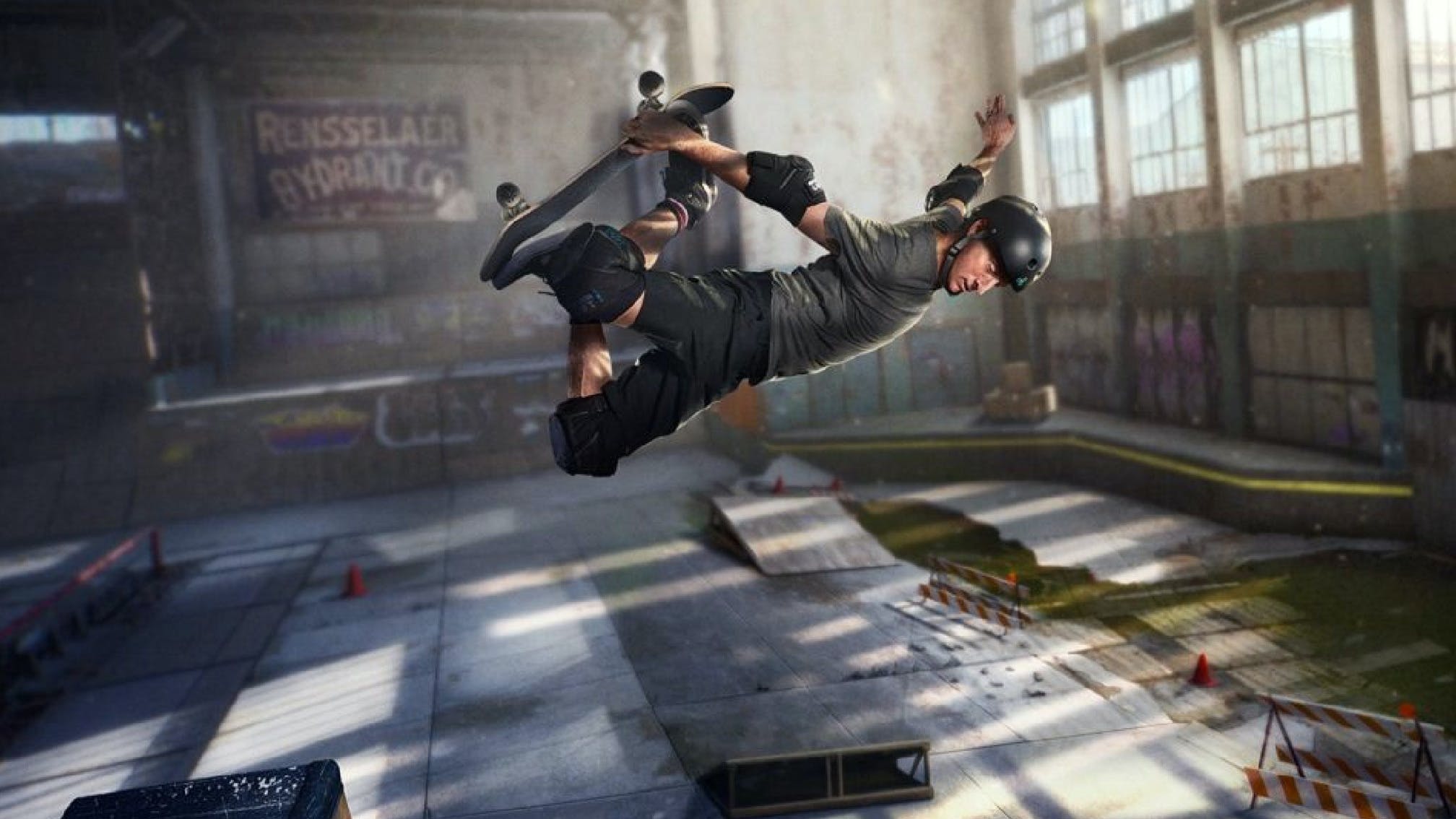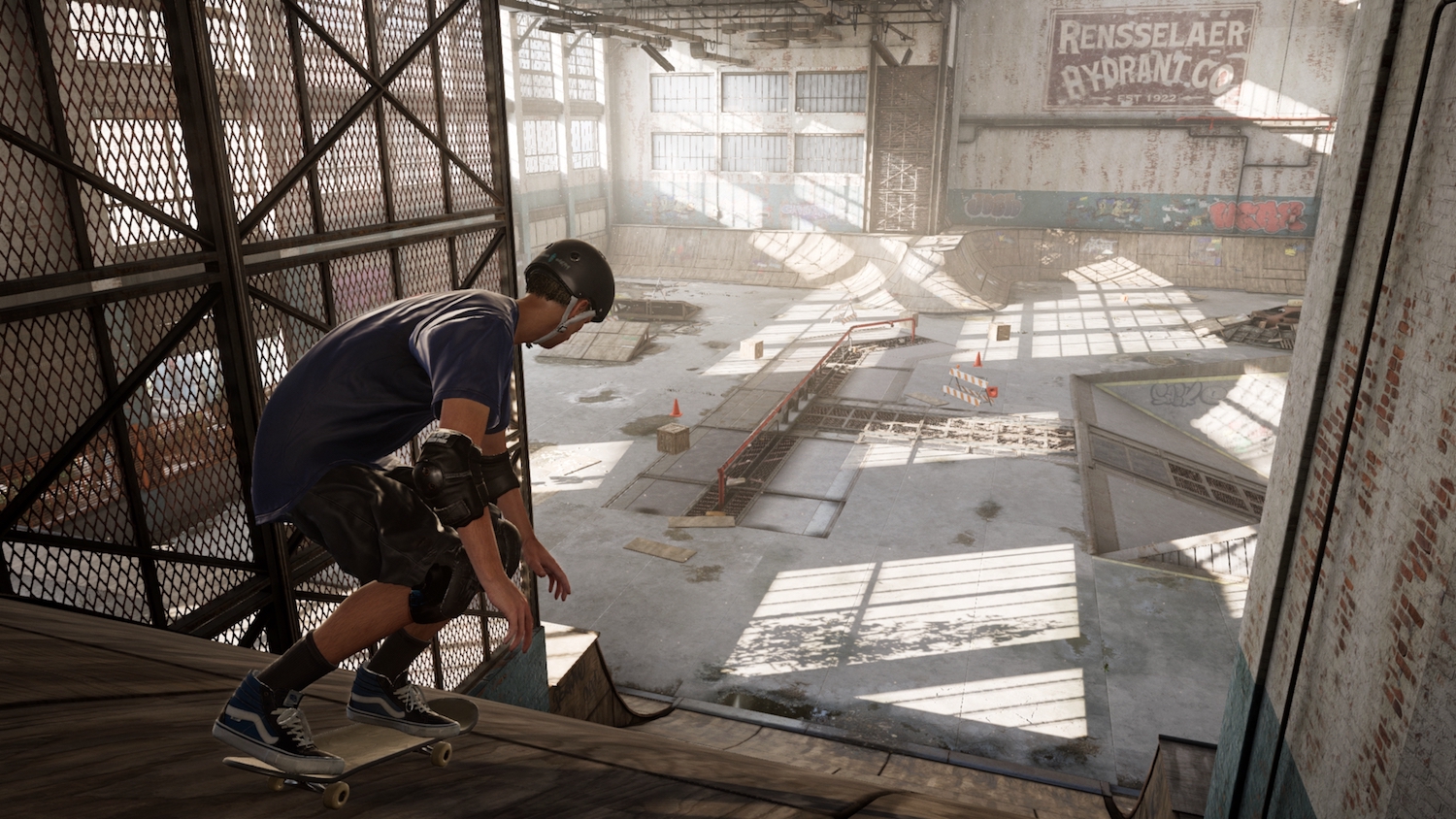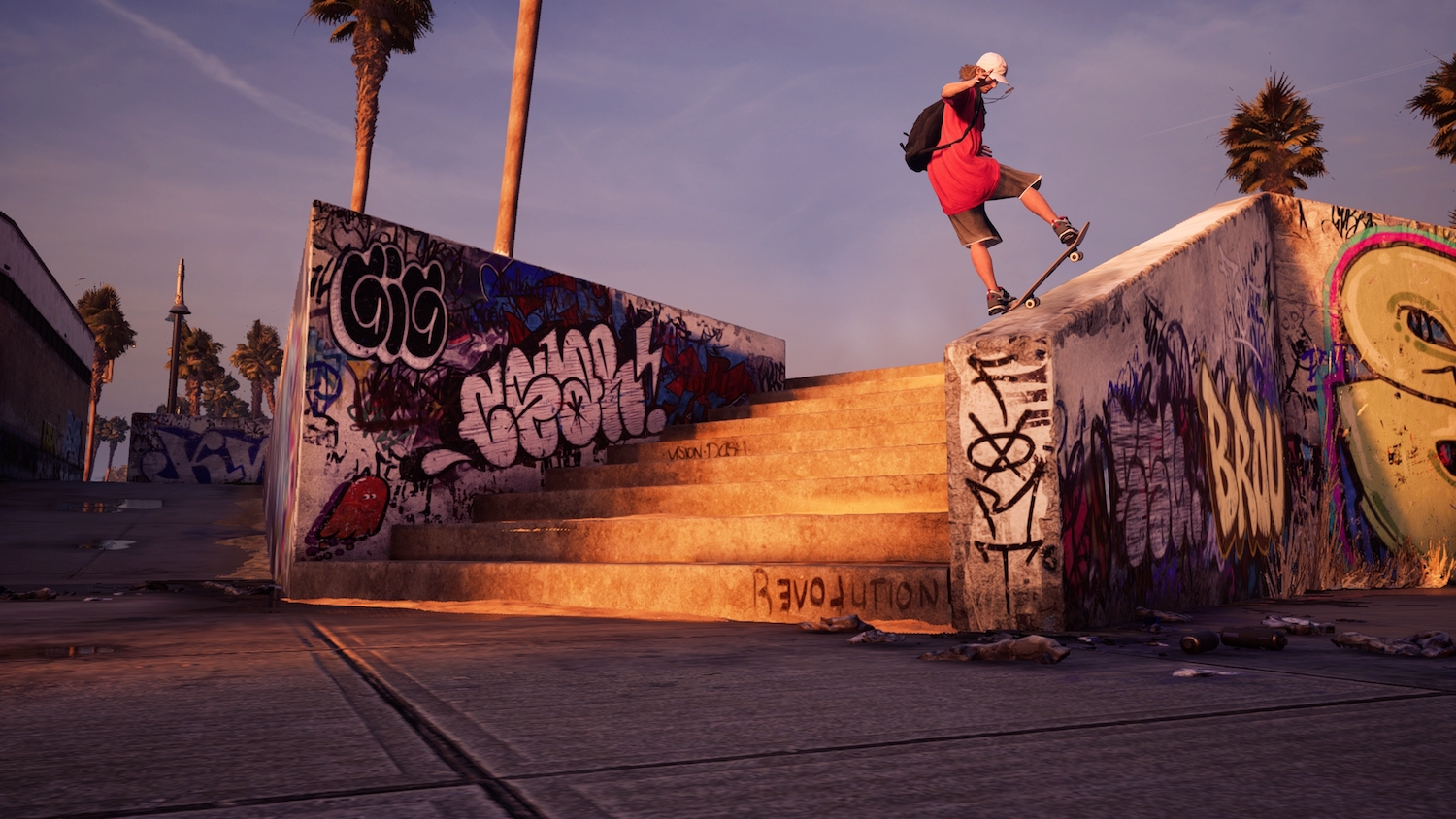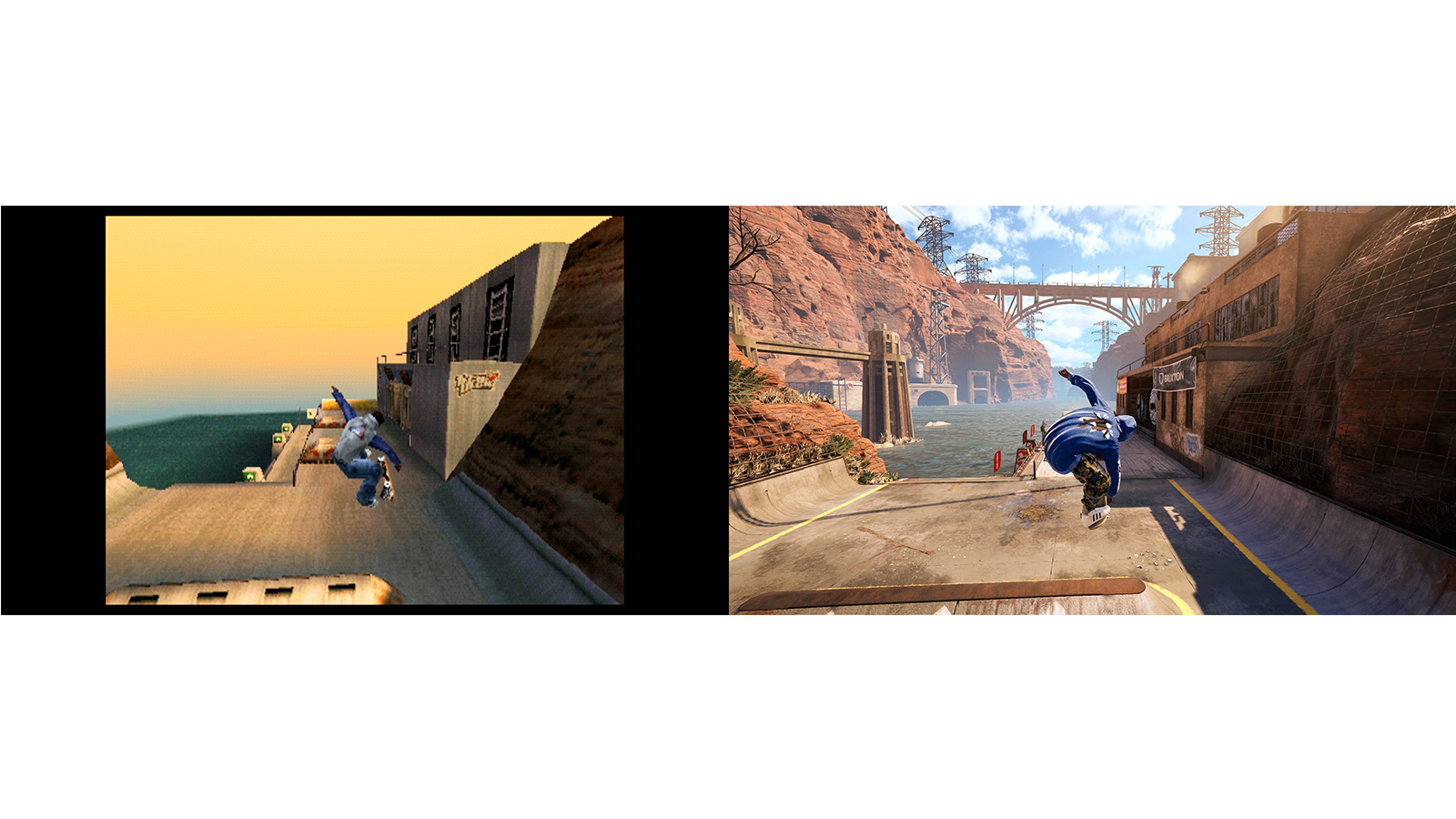The release of the remastered edition of Tony Hawk’s Pro Skater 1 & 2 has brought with it a flood of memories for many of us – and not just for the fond recollection of hunkering down with your mates for a winner-stays-on HORSE match after a messy night at the Student Union, or for a time where baggy jeans and giant DC trainers were de rigueur.
But the iconic original games didn’t just shape the musical tastes of a generation of gamers – introducing them to bands like Bad Religion, Rage Against The Machine and Papa Roach – they also gave greater credence to the symbiotic subcultures of skating and punk and metal music.
When worlds collide
When it comes to the original Tony Hawk’s Pro Skater soundtrack, there’s one song that marks most people’s first experience with the game. You probably know the words. A single screenshot from the game is all it takes for those memorised lyrics to strike that sweet, warming spot in the ever-nostalgic amygdala: “So here I am, doing everything I can / Holding on to what I am / Pretending I'm a superman.” Goldfinger’s Superman was the opening song of the first level of the game, and went on to become a sort of anthem for the series.
The Tony Hawk’s Pro Skater games were defining moments in video game history, and that’s why the remastered version of the first two games has been met with such positivity. But when the original game was being developed, no one had anticipated that it could bloom into such a significant release with such a wide-reaching impact in both the gaming and music worlds.
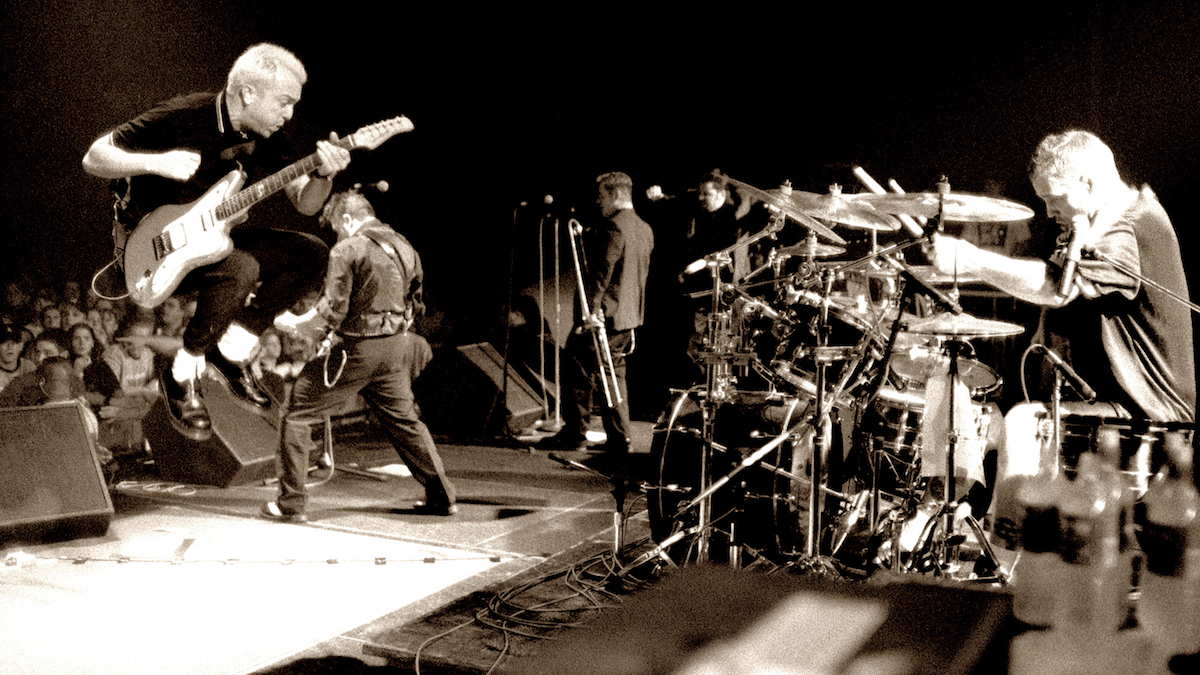
From the offset, both the studio behind the game, Neversoft, and Tony Hawk himself had wanted to create something that was authentic to skateboarding culture. Yes, this did mean graffiti-styled menus and playable real-world skating stars. And yes, this also meant a healthy dose of The Vandals. And if skaters embodied a sort of stick-it-to-the-man anarcho-liberty, then it only made sense that the game was accompanied by an equally-appropriate soundtrack. Punk rock was especially dominant within skateboarding culture and so, to ensure Tony Hawk’s Pro Skater’s authenticity, the developers knew the game needed to incorporate licensed music from reputed punk bands.
But actually, Neversoft didn’t have a huge number of diehard skaters on its team of developers, starting on the project as little more than a task handed down from its publisher Activision. This meant that a fair chunk of how the team interpreted skating culture for the game was transposed from The Birdman himself, which naturally led to Hawk’s own musical tastes influencing the soundtrack.
This is the reason why the tracklist for the first game is skewed towards bands a little older than those around at the time of the game’s September 1999 launch, like Dead Kennedys and Suicidal Tendencies. While these songs may not have been quite as contemporary, the game felt genuine. Skaters heard the soundtrack of their own lives reverberating throughout the game while, critically, those not (yet) educated in the ways of skateboarding would find themselves drawn in by the energetic music.
Changing the game
By the time the Tony Hawk Pro Skater sequel came around a year later, the soundtrack was bang up-to-date and had a much wider scope, adding to the punk backbone with rock, metal and hip-hop. The sounds of Papa Roach, Rage Against The Machine, Powerman 5000 and Millencolin rocked the PS1 discs, alongside established acts like Bad Religion and Anthrax. For most players, these songs are etched in their minds, accented by the clunky, aged SFX of failed grinds, bailed grab tricks or mistimed ollies.
But what was most phenomenal about THPS’s success was the signal boosting effect it had. Tony Hawk and the game’s developers believed the franchise might only appeal to skaters, but actually the opposite happened. Just like an outstanding album can reach beyond genre boundaries, the Pro Skater games gave credence to skateboarding and heavier music across a broad, mainstream audience, with players ultimately delving deeper into the bands featured in the games, but also heading out to explore the wider worlds of punk and metal.
Of course, the success of the games also impacted the bands themselves. At a time when MTV was the only real route to breaking out of obscurity, no one considered that a video game of all things might be capable of providing a similar springboard. Search Spotify for any of the bands featured on the original two THPS games and the songs featured in the games are their most popular. At the time of writing, Goldfinger's upbeat rendition of Nena’s 99 Red Balloons is still bested by Pro Skater’s unofficial anthem, Superman, currently ahead of the pack by a cool 15 million plays.
In addition to exploring back catalogues, gamers began snapping up tickets to see the band’s they’d discovered through the game in the flesh, expanding the punk genre beyond its underground appeal. For bands like Texan punks Speedealer, one of the lesser known artists on the original soundtrack, appearing in the game was a revelation, elevating them from anonymity and giving them a route away from the toilet circuit.
Primus found that people would attend their gigs having only ever heard Jerry Was A Racecar Driver in the game, while Motörhead once said that the inclusion of Ace Of Spades in the third game is what gave their ageing audience a younger energy. And to this day, Bad Religion considers You to be the song that made them famous because of THPS and has become a setlist mainstay, two decades after the game was released.
This isn’t to say that punk or metal owe a debt to Tony Hawk’s Pro Skater – both were in rude health in the eighties and nineties long before gamers found their way in after all – but the mainstream success of the games helped validate them, and that can only have helped other bands find their way to the genre in later years. In many ways the mainstream endgame of the likes of Green Day, My Chemical Romance and so many others like them are a direct result of the Tony Hawk’s boom.
Blast from the past
And now, with the remastered editions, it’s come full circle to the point that the new developer, Vicarious Visions, is all too aware of the importance of retaining as many of those original tracks as possible. The likes of Goldfinger, Lagwagon and Papa Roach are present and correct, whilst the updated game continues THPS's legacy of providing a platform to newer artists, this time including Machine Gun Kelly and FIDLAR.
Booting up Tony Hawk’s Pro Skater 1 + 2 won’t be dissimilar to spinning a beloved record that you haven’t heard in years: it’s not just the encapsulation of a time, place and feeling in each of our lives, but proof that the classics never go out of style.
